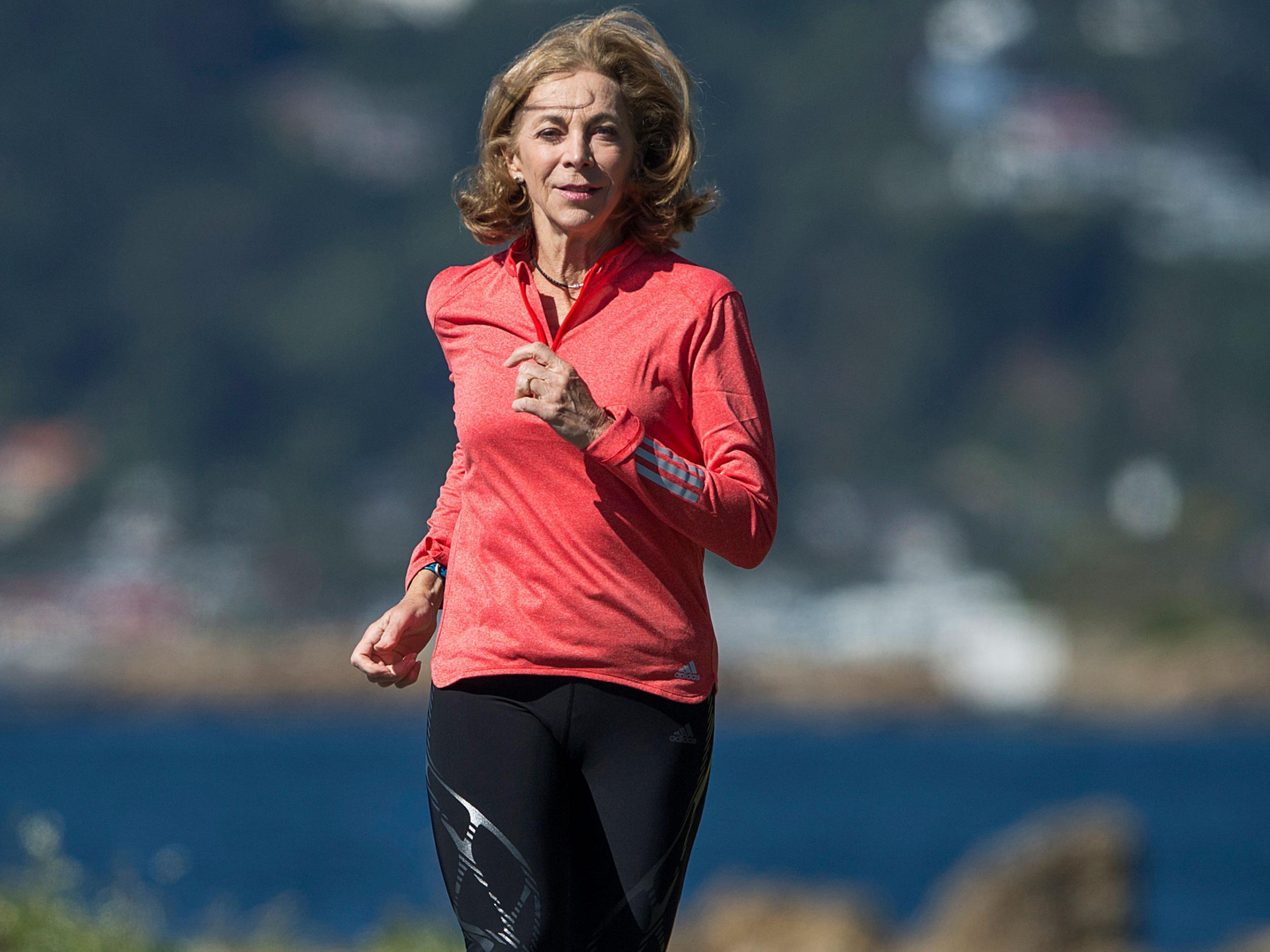Boston Marathon: First woman to compete in race 50 years ago runs again
'I was serious about my running and I could not let fear stop me'

Your support helps us to tell the story
From reproductive rights to climate change to Big Tech, The Independent is on the ground when the story is developing. Whether it's investigating the financials of Elon Musk's pro-Trump PAC or producing our latest documentary, 'The A Word', which shines a light on the American women fighting for reproductive rights, we know how important it is to parse out the facts from the messaging.
At such a critical moment in US history, we need reporters on the ground. Your donation allows us to keep sending journalists to speak to both sides of the story.
The Independent is trusted by Americans across the entire political spectrum. And unlike many other quality news outlets, we choose not to lock Americans out of our reporting and analysis with paywalls. We believe quality journalism should be available to everyone, paid for by those who can afford it.
Your support makes all the difference.The first woman to officially run the Boston Marathon has marked five decades since her achievement by running it again – at the age of 70.
Kathrine Switzer completed the race under the qualifying time in 4 hours 44 minutes 31 seconds.
She made sporting history by completing the 1967 marathon despite being attacked by the race director at the time for being a woman.
Ms Switzer’s determination to finish the race won her plaudits and paved the way to equality for women in running.
Despite campaigning extensively for female participation in the sport, Ms Switzer has not run a marathon since 2011.
For the 121st Boston Marathon, race organisers have retired bib 261, in honour of the number Ms Switzer wore during the race in 1967. The Boston Marathon has only retired one other number in its history: 61, for 61 races begun by athlete Johnny Kelly.
Ms Switzer – who has been running since she was 12 years old – decided to enter the race aged 20 after encouragement from her coach. Before entering, she had to prove to him she was capable of completing the race’s 26 miles.
“There were no real rules in 1967 stating that the Marathon was for men only,” Ms Switzer said.
“Nor was there anything indicating gender on the entry form. But almost all sports were for men. Women rarely participated. Most people assumed that women could not run the marathon distance and if they tried they would hurt themselves.”
Signing up using her initials KV Switzer – which didn’t identify her as female – she was allocated the number 261 for the marathon.
Because of the cold weather on the morning of the race, Ms Switzer and the rest of the runners stayed dressed in their warm up tracksuits, which she believes helped her blend in unnoticed by race organisers.
But she wasn’t hiding: “I was very proud of being a woman. I had long hair, wore lipstick and eyeliner to the start line. All the men around me knew that I was a woman.”
Two miles into the marathon, Ms Switzer was attacked by a race official.
“I jerked my head around quickly and looked square into the most vicious face I'd ever seen,” she recalled in her memoir.
“A big man, a huge man, with bared teeth was set to pounce, and before I could react he grabbed my shoulder and flung me back, screaming, 'Get the hell out of my race and give me those numbers!'”
Her boyfriend, who was running with her, managed to shove the official out of the way and Ms Switzer kept running.
“I knew if I dropped out no one would believe women could run distances and deserved to be in the Boston Marathon. They would just think that I was a clown, and that women were barging into events where they had no ability.
“I was serious about my running and I could not let fear stop me.”
Ms Switzer went on to campaign for women’s running and was pivotal in gaining the introduction of the women’s marathon to the 1984 Olympic games. She now runs a campaign named 261 Fearless, which encourages women to run.
Geoffrey Kirui won the men's race, pulling away from three-time US Olympian Galen Rupp with two miles to go to give Kenya its first men's victory in five years. Edna Kiplagat won the women's race to complete the Kenyan sweep.
Join our commenting forum
Join thought-provoking conversations, follow other Independent readers and see their replies
Comments